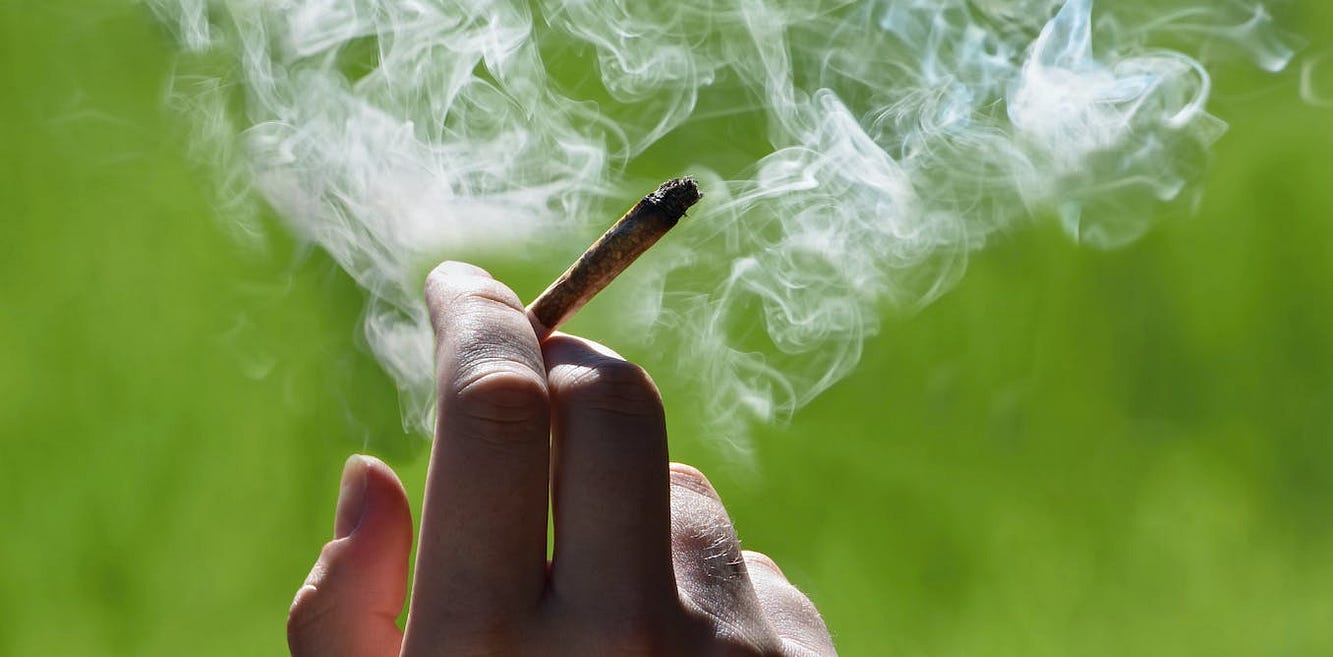the health strategist
institute for
strategic health transformation
and digital health
Joaquim Cardoso MSc.
Chief Research & Strategy Officer (CRSO),
Chief Editor and Senior Advisor
August 30, 2023
What is the message?
Despite the increasing belief that cannabis smoke is harmless, there are potential health risks associated with exposure to cannabis smoke, and these risks are not yet fully understood due to limited research.
The article highlights that while tobacco policies are becoming more restrictive, cannabis policies are moving in the opposite direction, with more states legalizing its use for medical or recreational purposes. This shift in perception and policy has led to an increasing number of people being exposed to cannabis smoke.
The author, a primary care doctor and researcher, conducted a survey that showed changing opinions about the safety of cannabis smoke compared to tobacco smoke.
More people are starting to view exposure to cannabis smoke as safer than tobacco smoke, both directly and secondhand. However, the article emphasizes that emerging research is raising concerns about the potential health effects of cannabis smoke exposure.
The article discusses the challenges in studying the long-term effects of cannabis smoke due to its federal illegal status and the complexities of conducting research on substances that may take a long time and heavy exposure to manifest negative health effects.
The author points out that the absence of clear findings on negative health effects should not be taken as evidence of harmlessness, as there are shared carcinogens and toxins in both cannabis and tobacco smoke.
The author also highlights the importance of public perception in shaping the use of cannabis and related policies.
People’s beliefs about the safety of cannabis influence their likelihood of using it, and these beliefs can impact laws and regulations surrounding its use. The article acknowledges that while some clinical trials show potential benefits of cannabis in specific medical contexts, many claims about its health benefits are not supported by scientific research.
In conclusion
The message of the article is to encourage a balanced and evidence-based approach to understanding the potential benefits and risks of cannabis use, especially in the context of smoke exposure.
It emphasizes the need for further research to better understand the health implications of cannabis smoke and underscores the importance of seeking unbiased sources of information when making decisions about cannabis use.
KEY POINTS
- Many advocates point to the lack of clear findings on negative health effects of cannabis smoke exposure as proof of its harmlessness. However, my colleagues and I feel that this is an example of the famous scientific quote that “absence of evidence is not evidence of absence.”
- Scientists have identified hundreds of chemicals in both cannabis and tobacco smoke, and they share many of the same carcinogens and toxins. Combustion of tobacco and cannabis, whether by smoking or vaping, also releases particles that can be inhaled deep into the lungs and cause tissue damage.
- Animal studies on the effects of secondhand tobacco and cannabis smoke show similar concerning effects on the cardiovascular system. These include impairments in blood vessel dilation, increased blood pressure and reduced heart function.
Though more research is needed to determine the risk of lung cancer, heart attacks and strokes posed by cannabis smoke, what is already known has raised concerns among public health agencies.
DEEP DIVE

Many people think cannabis smoke is harmless − a physician explains how that belief can put people at risk
The Conversation
Beth Cohen, University of California, San Francisco
August 30, 2023
Professor of Medicine, University of California, San Francisco
Though tobacco use is declining among adults in the U.S., cannabis use is increasing. Laws and policies regulating the use of tobacco and cannabis are also moving in different directions.
Tobacco policies are becoming more restrictive, with bans on smoking in public places and limits on sales, such as statewide bans on flavored products. In contrast, more states are legalizing cannabis for medical or recreational use, and there are efforts to allow exceptions for cannabis in smoke-free laws.
These changes mean an increasing number of people are likely to get exposed to cannabis smoke. But how safe is direct and secondhand cannabis smoke?
I am a primary care doctor and researcher in a state where cannabis is now legal for medical and recreational use. My colleagues and I were interested in how opinions about tobacco and cannabis smoke safety have been changing during this time of growing cannabis use and marketing.
In our survey of over 5,000 U.S. adults in 2017, 2020 and 2021, we found that people increasingly felt that exposure to cannabis smoke was safer than tobacco smoke.
In 2017, 26% of people thought that it was safer to smoke a cannabis joint than a cigarette daily.
In 2021, over 44% chose cannabis as the safer option.
People were similarly more likely to rate secondhand cannabis smoke as being “completely safe” compared with tobacco smoke, even for vulnerable groups such as children and pregnant women.
Despite these views, emerging research raises concerns about the health effects of cannabis smoke exposure.

Do opinions on cannabis match the science?
Decades of research and hundreds of studies have linked tobacco smoke to multiple types of cancer and to cardiovascular disease.
However, far fewer studies have been done on the long-term effects of cannabis smoke. Since cannabis remains illegal at the federal level, it is more challenging for scientists to study.
It has been particularly hard to study health outcomes that may take a long time and heavier exposure to develop.
Recent reviews of research on cannabis and cancer or cardiovascular disease found those studies inadequate because they contained relatively few people with heavy exposure, didn’t follow people for a long enough time or didn’t properly account for cigarette smoking.
Many advocates point to the lack of clear findings on negative health effects of cannabis smoke exposure as proof of its harmlessness. However, my colleagues and I feel that this is an example of the famous scientific quote that “absence of evidence is not evidence of absence.”
Scientists have identified hundreds of chemicals in both cannabis and tobacco smoke, and they share many of the same carcinogens and toxins. Combustion of tobacco and cannabis, whether by smoking or vaping, also releases particles that can be inhaled deep into the lungs and cause tissue damage.
Animal studies on the effects of secondhand tobacco and cannabis smoke show similar concerning effects on the cardiovascular system. These include impairments in blood vessel dilation, increased blood pressure and reduced heart function.
Though more research is needed to determine the risk of lung cancer, heart attacks and strokes posed by cannabis smoke, what is already known has raised concerns among public health agencies.

Why do opinions on cannabis matter?
How people perceive the safety of cannabis has important implications for its use and public policy. Researchers know from studying cannabis and other substances that if people think something is less risky, they are more likely to use it. Opinions on cannabis safety will also shape medical and recreational cannabis use laws and other policies, such as whether cannabis smoke will be treated like tobacco smoke or whether exceptions will be made in smoke-free air laws.
Part of the complexity in decisions about cannabis use is that, unlike tobacco, clinical trials have demonstrated that cannabis can have benefits in certain settings. These include managing specific types of chronic pain, reducing nausea and vomiting associated with chemotherapy and increasing appetite and weight gain in those with HIV/AIDS. Notably, many of these studies were not based on smoked or vaped cannabis.
Unfortunately, though Googling cannabis will return thousands of hits about the health benefits of cannabis, many of these claims aren’t supported by scientific research.
I encourage people who want to learn more about the potential benefits and risks of cannabis to talk to health care providers or seek sources that present an unbiased view of the scientific evidence.
The National Center for Complementary and Integrative Health has a good overview of studies on cannabis for treatment of a variety of medical conditions, as well as information about potential risks.
Originally published at https://theconversation.com on August 30, 2023.
Disclosure statement
Beth Cohen receives funding from the Tobacco Related Disease Research Program and National Institutes of Health.












